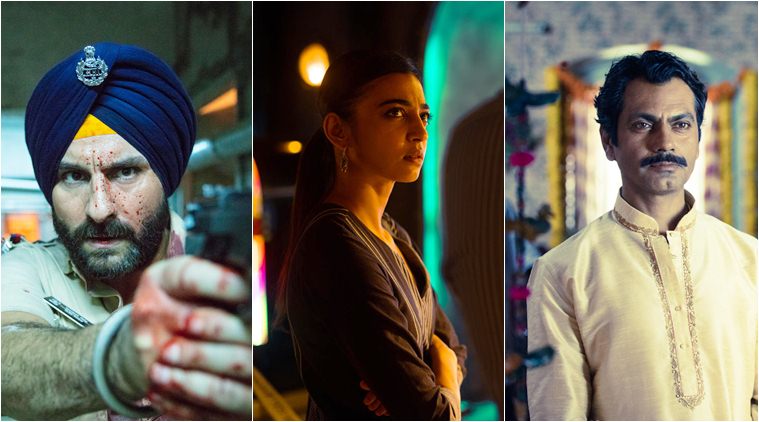 The Union Health Ministry says that smoking scenes in Sacred Games — as in all other online content — come without the anti-tobacco warnings.
The Union Health Ministry says that smoking scenes in Sacred Games — as in all other online content — come without the anti-tobacco warnings.
While Opposition Congress has found fault in some dialogues in Sacred Games, the first original series for India produced by video-streaming giant Netflix, the government is concerned about certain other aspects of it. The Union Health Ministry says that smoking scenes in Sacred Games — as in all other online content — come without the anti-tobacco warnings.
The lack of warnings for online content has left the ministry scouting for ways to bring them under the ambit of the anti-tobacco law.
But unlike movies in theatres and other shows on TV, where anti-tobacco warnings are screened, online video-streaming platforms, which are qualified as Over-The-Top (OTT) services, are not regulated, as yet, in India.
To overcome this hurdle, the Health Ministry is looking at provisions in the WHO Framework Convention on Tobacco Control (WHO FCTC), which forbids cross-border advertisements of tobacco products, a top official said. Developed in response to “globalisation of tobacco epidemic”, WHO FCTC is the first international treaty negotiated under the auspices of WHO.
A ministry official said, “Currently, sites that stream online content are not required to carry health warnings on tobacco. But after the recent decision to ratify the FCTC protocol against illicit tobacco trade we are looking at FCTC provisions dealing with cross-border tobacco advertisements.”
The official said, “Both Netflix and Amazon Prime are based out of the US, so we cannot possibly ask them to follow the Cigarettes and Other Tobacco Products (Prohibition of Advertisement and Regulation of Trade and Commerce, Production, Supply and Distribution) Act, 2003. But there is obligation under FCTC on advertisements that emanate from another country. It is not just these platforms — when an international car race is telecast with cars carrying names of particular tobacco brands…that too is cross-border advertising.”
Article 13 of FCTC makes it obligatory for signatories to implement a “comprehensive ban on tobacco advertising, promotion and sponsorship”.
In October 2017, the Health Ministry had written to the Telecom Regulatory Authority of India (TRAI) to issue an advisory to platforms such as Netflix, Amazon Prime, Hotstar, Voot and Hungama, which are “not fully compliant” to the rules governing smoking on screen. Rules require a no-smoking ad to be played at the beginning and interval of movies, and also a warning line on the screen while the smoking scene is on.
“For now, the reach of these platforms is limited, but we are conscious that as internet becomes cheaper they will get more and more popular. We need to find a way to regulate them,” the official said.
Beyond anti-tobacco warnings, Sacred Games has also raised questions on whether OTT services should be regulated in India.
The I&B Ministry has CBFC, which gives rating to films and can recommend changes, and the Electronic Media Monitoring Centre to monitor all TV channels. Besides, anybody can file a complaint against a channel or a show to the Broadcasting Content Complaints Council of Indian Broadcasting Foundation, a self-regulatory body.
But the content on online OTT platforms is not under I&B Ministry’s domain.
In March 2015, TRAI had released a consultation paper regarding regulating OTT services and the focus was more economic. TRAI is considering a consultation paper this year, which may also focus on video-streaming platforms.